Are you curious about how much your single-wide trailer home weighs? A trailer's weight can influence how much you'll pay if you transport it to another place, so your question is understandable. We've got the answer, so keep reading to learn more.
On average, single-wide trailers weigh around 11,000 pounds. However, this weight is only a measurement as there's quite a range of sizes for single-wide trailers. In addition, you can determine your single-wide trailer's weight by finding its VIN or calculating it using a formula.
Do you still need more information about the weight of single-wide trailers? We've got more for you, so don't go yet. We'll also explain the different trailer weight ratings, as you may confuse them with one another. Learn your tractor's weight and more by reading on!
Average Weight Of A Single Wide Trailer
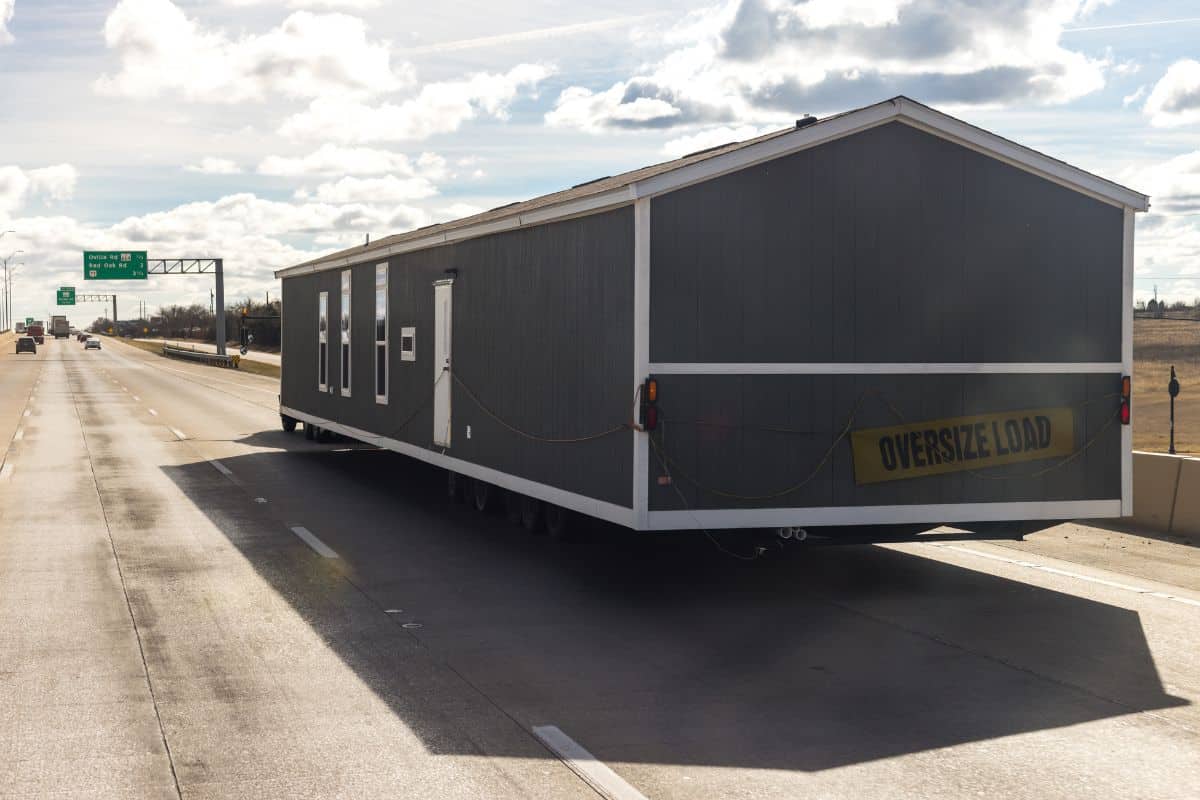
Usually, a single-wide trailer weighs about 11,000 pounds. Of course, the exact weight may be smaller or larger than this, depending on different factors. That's why if you want to determine the precise weight of your trailer, it's better to find it out by following either of these ways:
1. Find Your Trailer's VIN
The easiest way to find your single-wide trailer's weight is by finding its Vehicle Identification Number (VIN) sticker. You can also see who manufactured your trailer and the year they made it from this.
Usually, you can find the VIN on your trailer's data plate. Here's where you can check for it:
- The cabinets in your trailer home's kitchen.
- The back wall of your trailer's bedroom closet.
- In your trailer's water heater closet or your bathroom cabinet.
But, sometimes, they're stamped or marked on your trailer's steel frame where hitches are attached.
After you find your VIN sticker, look for its gross vehicle weight (GVW). This will then be your trailer's empty weight and loading capacity combined.
To find out the weight of your trailer when empty, subtract your vehicle's GVW from its GVWR (maximum loading capacity), that's also on your VIN.
See this blank VIN ID plate on Amazon.
2. Calculating Your Single-Wide Trailer Size

If you can't find your trailer's VIN, you can try calculating its weight yourself. However, note that this calculation will only estimate your trailer's empty weight and will not be as specific as your VIN.
To start, you should determine how much weight per square foot your trailer has.
There are different trailer weights (single or double-wide) per square foot. What matters is knowing how old or modern your trailer is. Here's a guide for you:
- Older trailers manufactured from 1960 to 1980 typically weigh 40 lbs per square foot.
- Newer trailers manufactured after 1981 commonly weigh 50 lbs per square foot. But new trailers that have high ceilings and drywall weigh 70 lbs.
After determining which of these two weight classifications your single-wide trailer falls to, measure the size of your trailer. To do this, use a tape measure and check how long and wide it is.
Typically, single-wide trailers are 66' to 80' long and 14' to 18' wide. However, older trailers' widths can differ at either 8', 10'. or 12'. Keep this in mind as you measure.
Multiply the length and width of your trailer after measuring. Then, you're ready to calculate the weight of your trailer. To calculate, multiply the average weight of your trailer per square foot by the size of your trailer.
To make it clearer for you, here's the formula:
(weight of your trailer per square foot) x (total size of your trailer in square feet) = total trailer weight
Tap here to check out this tape measure on Amazon.
What Different Trailer Weight Ratings Mean
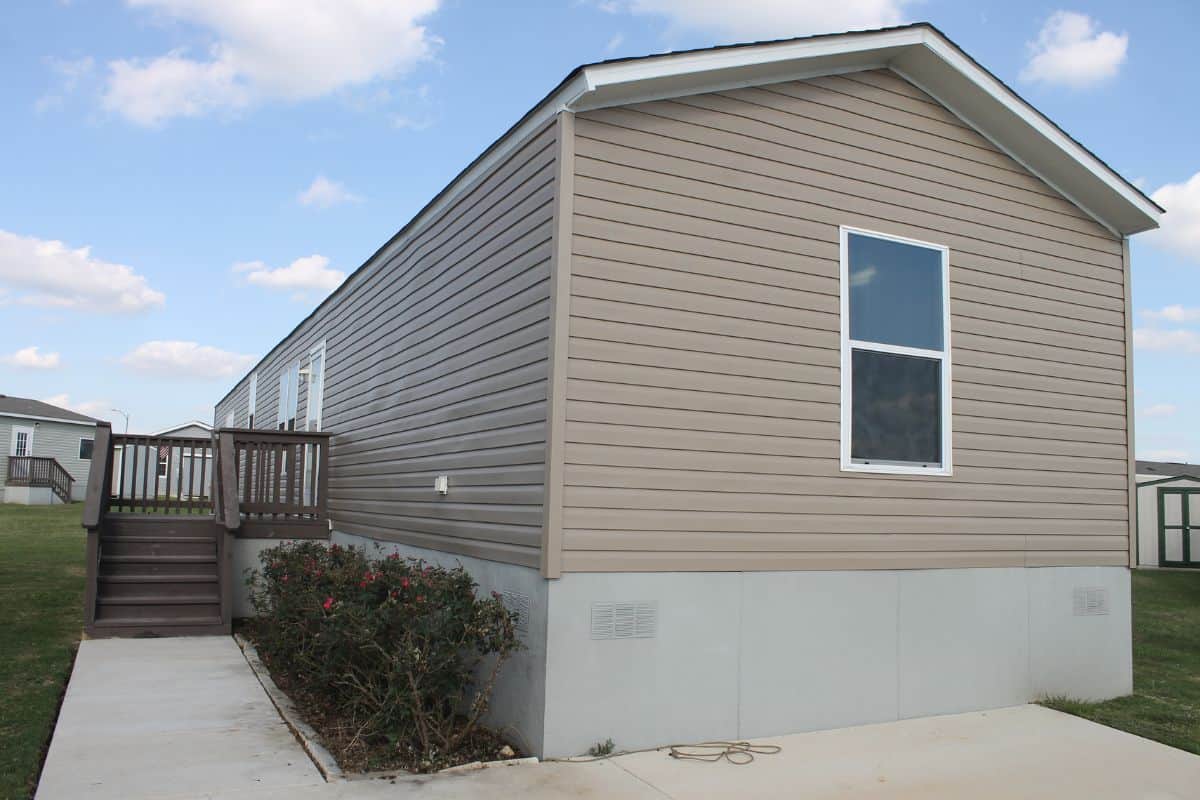
If you find your trailer's VIN, you may also notice other weight ratings included in them. Typically, they're in acronyms, which may confuse you at first. There are also more trailer weight ratings you may come across on the internet.
That's why to help you, here's an explanation for each of them:
- Gross Vehicle Weight (GVW): As mentioned, GVW is the total weight of your trailer, along with its maximum loading capacity.
- Gross Trailer Weight (GTW): This weight rating is similar to the GVW, except that it includes the trailer's tongue weight.
- Tongue Weight: this is how much weight you need to push down your trailer's hitch ball when towing.
- Gross Vehicle Weight Rating (GVWR): As this is the maximum weight of the load your trailer can hold, your vehicle should only handle cargo or materials up to this limit. This loading capacity is based on your trailer's design, that's why any excessive weight will damage it.
- Gross Axle Weight Rating (GAWR): this is how much weight each of your vehicle's axles can hold.
Factors That Increase Your Single-Wide Trailer's Weight
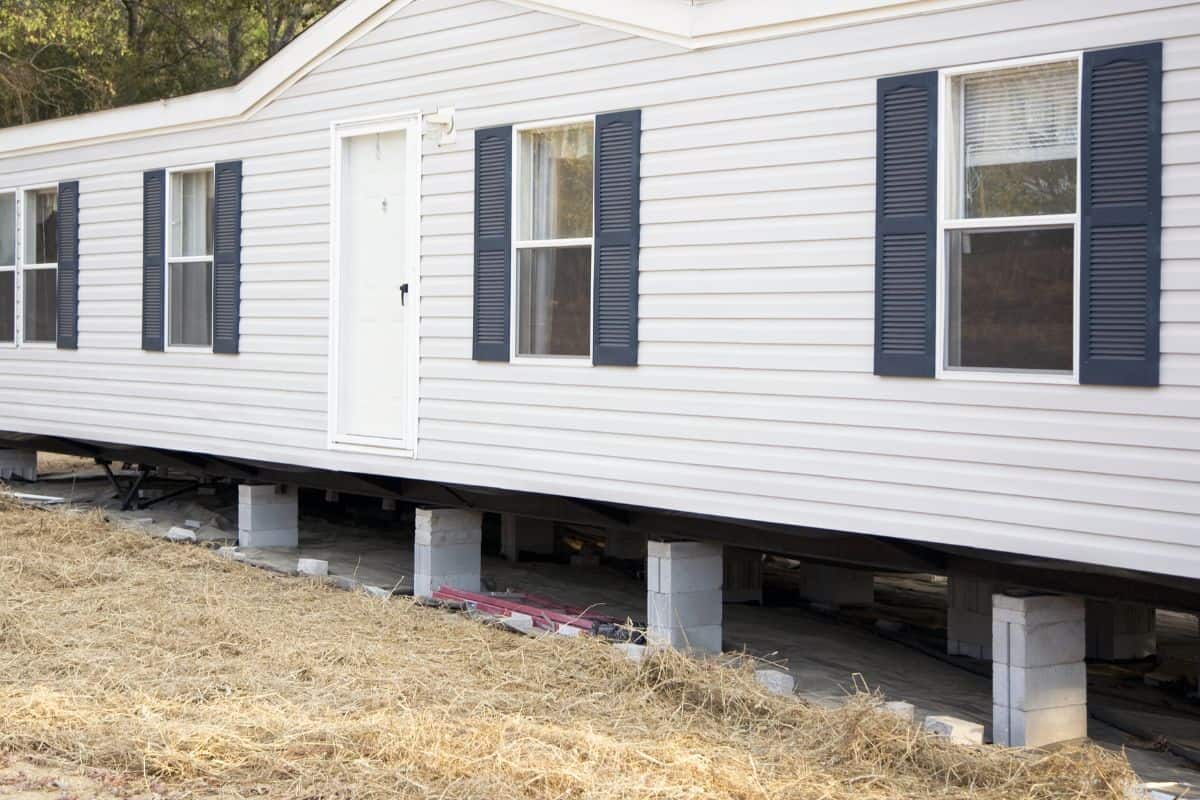
As you already know, your trailer's weight can differ from others even when you compare it with another single-wide trailer (unless it's the same model and size). In addition, even though you didn't load your trailer with cargo, other things may increase its overall weight, such as:
- Hitch: If you have this attached to your trailer, it will undeniably increase its weight depending on its type and size. As an estimate, add 400 lbs to 1500 to your trailer's empty weight.
- Carpeting: If you installed carpets on your trailer, they could influence its weight because of their density. Add 100 lbs per inch of carpet to your trailer's empty weight if you have them. But, if your carpet has padding, after adding a hundred pounds per carpet inch, add 50 lbs more per square foot.
- Appliances: There are appliances that you can remove from your trailer. However, because there may also be appliances you can't detach, you should consider adding an estimate of each of their weight to your trailer's empty weight.
How Should You Prepare To Transport A Single Wide Trailer
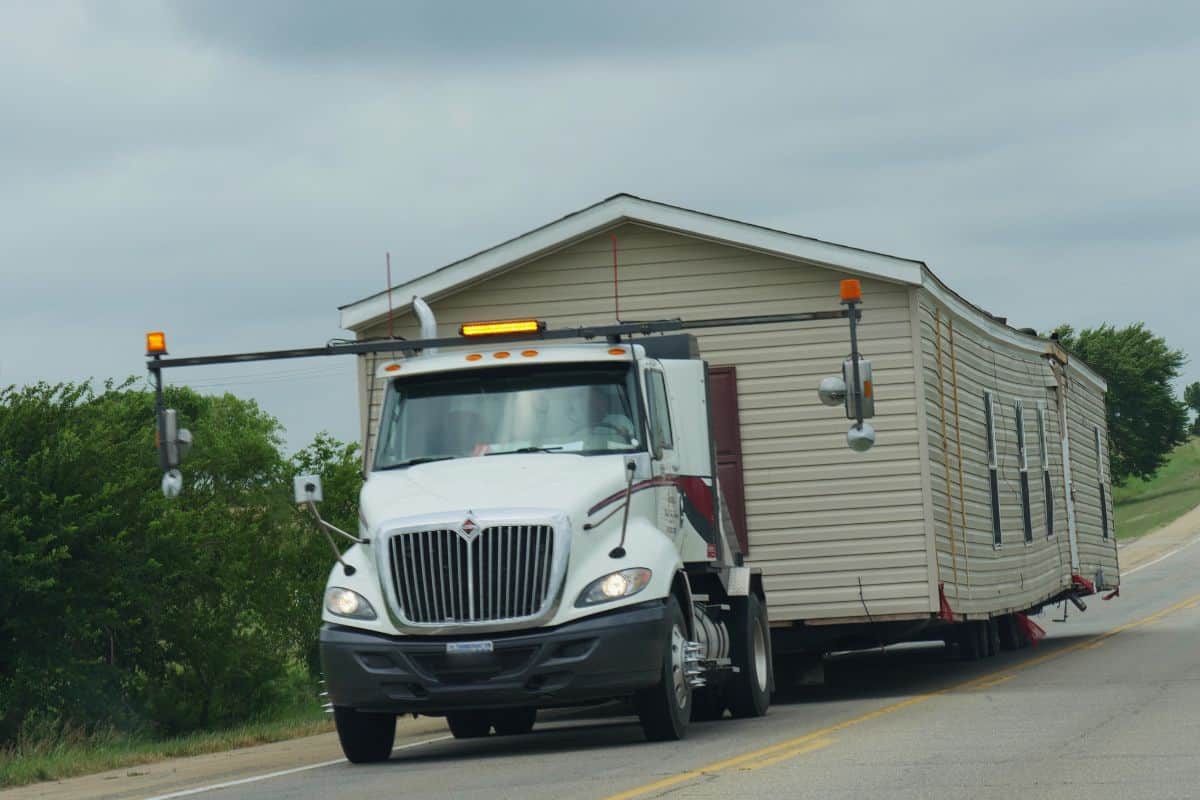
Aside from finding out your single-wide trailer home's weight for possible transport, you should know many other things to prepare it.
Note that for single-wide trailers, the length should not be more than 72 feet, and the width should not exceed 15 feet. If your trailer exceeds this limit, you will need more permits to transport it. After checking for this, here are some tips you should follow:
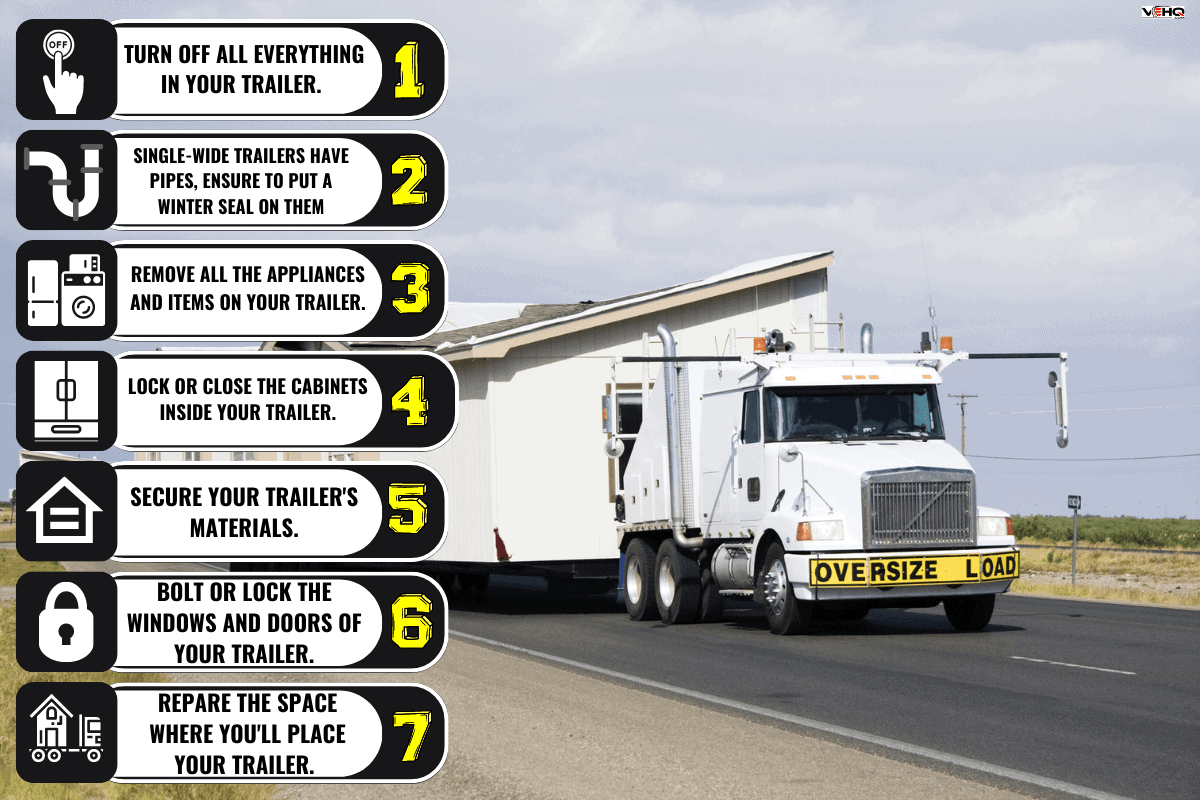
- Turn off all everything in your trailer. Make sure to shut down any utility, electricity, water, or gas systems on your trailer. Then, disconnect all the cables on your trailer.
- Single-wide trailers have pipes, so if you're transporting them during winter, ensure to put a winter seal on them.
- Remove all the appliances and items on your trailer. Remove any object inside or outside your vehicle that you can detach, especially valuables. After, secure them by storing them in storage boxes for transport.
- Lock or close the cabinets inside your trailer. If you have cabinets in your trailer that you cannot remove, ensure that their doors do not open during transport by locking or closing them.
- Secure your trailer's materials. Glass panels, light bulbs, glass cabinets or tables, and toilet tank lids should be removed and wrapped into a bubble wrap or moving blanket. Then, put them inside a box for transport.
- Bolt or lock the windows and doors of your trailer. If you want to secure them further, you can also cover them.
- Prepare the space where you'll place your trailer. Before the transport of your single-wide trailer home start, ensure that the location where your contractor will deliver it is ready and has flat and even ground without trees nearby.
Click here to see this bubble wrap on Amazon.
How Much Does It Cost To Transport A Single-Wide Trailer?
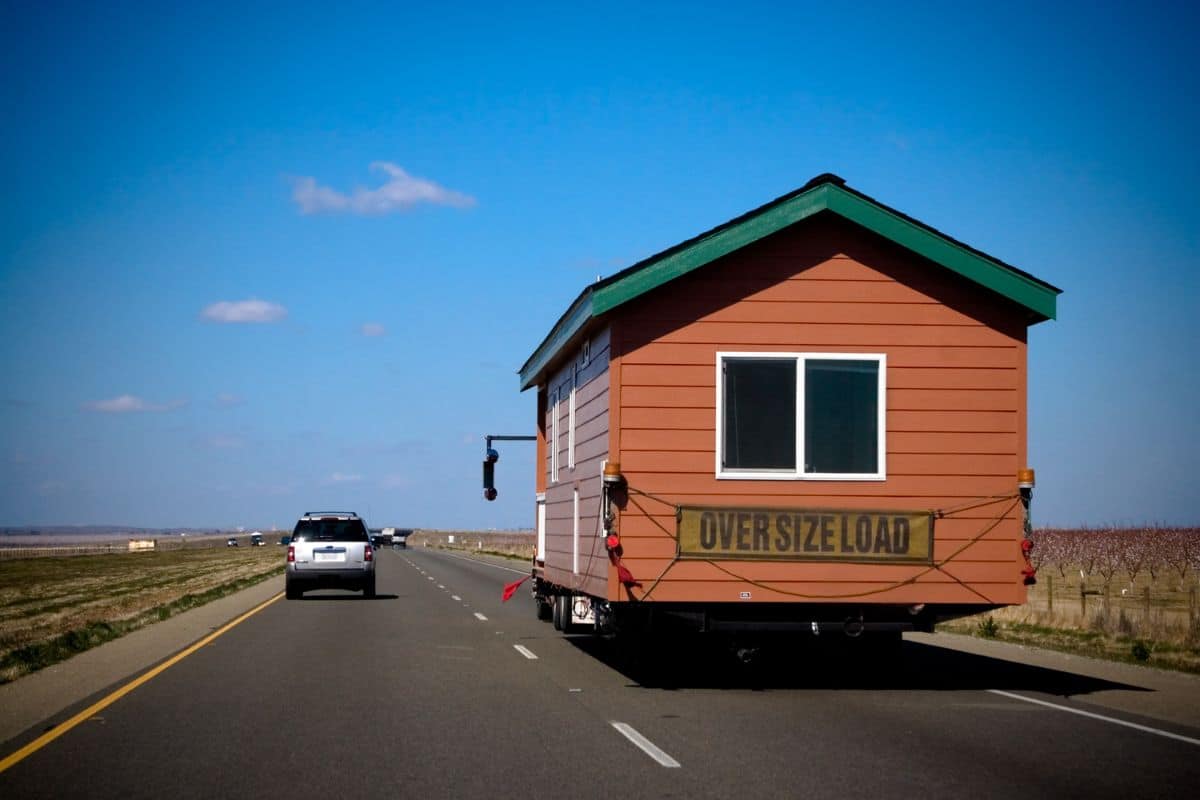
Typically, the price of moving a single-wide trailer ranges from $5000 to $8000, depending on different factors. These factors include:
- The cost of permits and insurance needed for transport.
- The size and weight of your trailer.
- How far your contractor will move it.
- How many vehicles escort it takes to transfer your trailer.
- The price of reconnecting your electricity, water, and gas to your new location.
- Cost of detaching your trailer home's appliances.
In Conclusion
Usually, to move a single-wide trailer home, you need to consider its weight. Single-wide trailers can differ in size and material, but their weight is typically 11,000 lbs. However, remember that this is only a rough estimate, and its weight can still decrease or increase.
That's why if you want to determine your single-wide trailer's weight, it's better to find them by either locating its vehicle identification number (VIN) or calculating the weight using a formula.
Did you find the information you need from this article? Here are more posts about trailers you might be interested in:



